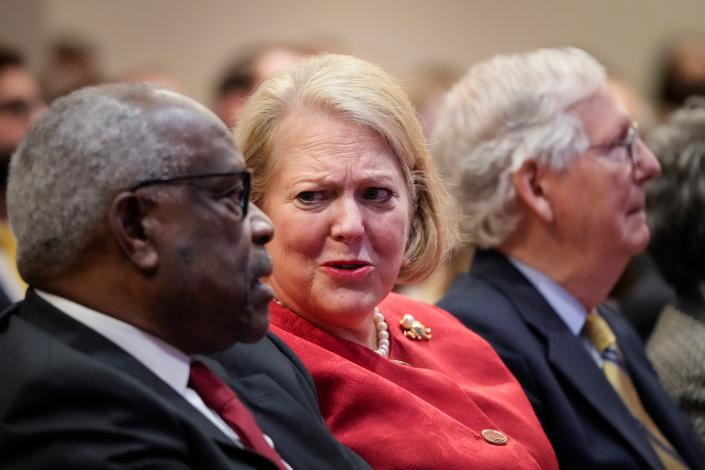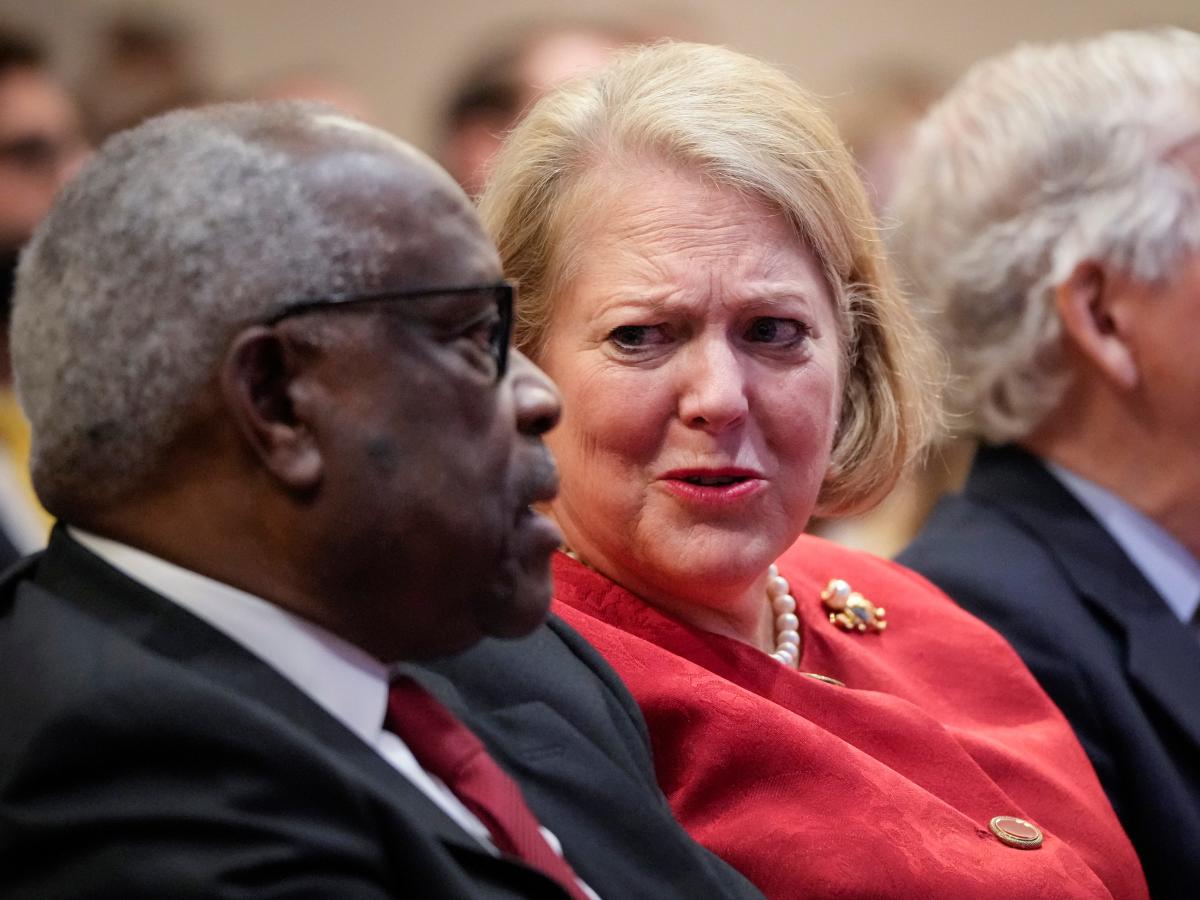
-
Ginni Thomas confirmed she has not spoken to Clarence Thomas about the 2020 election challenges.
-
On Friday, the conservative activist’s testimony with the January 6 panel was released in September.
-
Thomas was unable to point to specific instances of voter fraud in 2020 during her interview.
Ginni Thomas, the wife of Supreme Court Justice Clarence Thomas, told the Jan. 6 commission that it was “laughable” for anyone who knew her husband to believe she could “influence” his judicial philosophy.
The conservative activist — who gave a voluntary interview to the House panel in September about the January 6, 2021 riot at the Capitol — told members that Clarence Thomas is “stubborn” and “disinterested in politics.”
“I am sure I never spoke to him about any of the legal challenges for the 2020 election as I was not involved in any way in those challenges,” Ginni Thomas told the panel during her interview, noting that she had an “iron strong”. house rule not to discuss pending lawsuits with Clarence Thomas. “Let me also add that it is laughable for anyone who knows my husband to think that I could influence his jurisprudence. The man is independent and stubborn, with strong character traits of independence and integrity.”
Ginni Thomas, who exchanged texts with then-White House Chief of Staff Mark Meadows in the immediate aftermath of the 2020 presidential election where she urged him to challenge current President Joe Biden’s victory over then-President Donald Trump, said during her Jan. 6 interview that she regretted sending the messages to the senior Trump administration official.
“I regret all these lyrics,” she told the commission during her closed-door testimony, which was released to the public on Friday. “It was an emotional time and people were afraid there had been enough fraud that they wouldn’t get to the bottom of it. So that’s how I would look at it.”
Ginni Thomas admitted during her Jan. 6 commission interview that while she was concerned about voter fraud in the 2020 election, she was unable to point to any specific instances of such malfeasance.
“I can’t say I was privy to any specific evidence at the time,” she told members. “I just heard it from news reports and friends on the ground, grassroots activists who were in different polling stations and found things suspicious.”
Rep. Liz Cheney of Wyoming, the Republican vice chairman of the January 6 panel, then asked Ginni Thomas to confirm her lack of verifiable information about voting irregularities in 2020.
‘Right. I know. I wasn’t very deep; I admit it,” she told Cheney.
“I heard it, Congressman, from a lot of people I trust. So trusted people told me there were problems, and I thought there should be people at the state level to look into those before it was too late,” she added.
After the 2020 election, Thomas also emailed a series of GOP lawmakers in Arizona and Wisconsin—two key swing states where Biden narrowly surpassed Trump—where she also urged them to overturn Biden’s victory.
Known in GOP circles for decades, Ginni Thomas has only in recent years become a bigger figure in the public sphere, driven by her ties to prominent conservatives, as her husband has assumed a prominent role as the leader of the now- dominant conservative bloc in the Supreme Court.
With a conservative majority of 6 to 3 on the Supreme Court, Judge Thomas’s legal philosophy has taken on incredible significance as the conservative bloc will reshape some of the most pertinent issues in American society in the near future.
Read the original article on Business Insider

